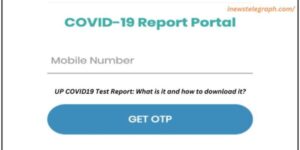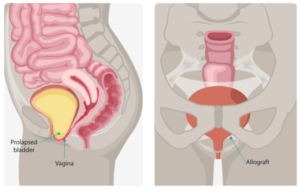Tax Benefits of Health Insurance You Should Know About

Tax Benefits of Health Insurance You Should Know About
You may have different goals for various stages of your life once you get a job. Generally, these include getting your own house, car, getting married and allocating funds for children’s education or retirement. However, the tax that you have to pay eats up a significant amount of your salary. It would help if you had proper tax planning to save more and achieve your goals with ease. Buy health insurance for yourself and your family to deal with the high cost of treatment. Apart from financial protection against medical emergencies, one more advantage of a health policy is that it will help you avail tax deduction.
Relation between tax benefit and health insurance
Section 80D of the Income Tax Act and Section 80DDB (Treatment of Critical Illnesses) can lower your tax liability by reducing the taxable income. The health insurance premium you pay for yourself and other family members will be deducted from your taxable income. You can claim a deduction for the health insurance premium and expenses incurred towards preventive health check-ups for self, spouse, dependent children, and parents. This policy is as per the terms and conditions mentioned in Section 80D of the Income Tax Act, 1961.
How to save under Section 80D for health insurance?
Under Section 80D of the Income Tax Act, the premium you pay towards health insurance coverage is exempted from your income tax liability for a particular financial year. It is available on individual plans or a family floater covering you, your spouse, children, and parents. You can also save on income tax for preventive health check-ups under 80D during the policy term.
There are three ways in which you can file a return:
- Claim a deduction of ₹25,000 under section 80D on health insurance for self, spouse and dependent children. File an additional deduction for insurance of dependent parents up to ₹25,000 if they are less than 60 years of age. So, the total deduction is ₹50,000.
- If the parents are aged above 60 years, the deduction amount is ₹50,000. You can claim a total deduction of ₹75,000, consisting of ₹25,000 on the premium paid for self, spouse, and dependent children and ₹50,000 on the premium paid for parents.
- If you and your parents are senior citizens, the maximum deduction you can claim would be ₹1,00,000 i.e. ₹ 50,000+₹ 50,000.
You can go through the table below for a better understanding:
| Scenario | Deduction Limit for Self, Spouse and Children | Deduction Limit for Dependent Parents | Deduction under 80D |
| All members below 60 years | ₹25,000 | ₹25,000 | ₹50,000 |
| Self, Spouse and Children below 60 years with parents (senior citizen) | ₹25,000 | ₹50,000 | ₹75,000 |
| Policyholder and parents, both senior citizens | ₹50,000 | ₹50,000 | ₹1,00,000 |
While filing your tax return this year, get a family floater health policy or individual medical insurance policies, as per your need. You will be able to save a good amount of tax deduction on the premium amount this way.
Understand tax saving under Section 80DDB
You can claim tax exemption under Section 80DDB for medical treatment of yourself and dependent family members suffering from some specified diseases. If the patient is insured with a health policy and the insurer has paid for the cost of treatment, you cannot claim a rebate on the amount received from the insurer. The diseases for which you can claim tax return are mentioned below:
- Neurological diseases where the disability level has been certified to be 40% and above. Some examples are:
- Dementia
- Dystonia Musculorum Deformans
- Motor Neuron Disease
- Ataxia
- Chorea
- Hemiballismus
- Aphasia
- Parkinson’s Disease
- Malignant Cancers
- Acquired Immuno-Deficiency Syndrome (AIDS)
- Chronic Renal failure
- Haematological disorders such as:
- Haemophilia
- Thalassemia
The new deduction limits under Section 80DDB came into effect from 1 April 2019, as shown below:
| Patient’s Age | Current Maximum Limit | Previous Maximum Limits |
| Individual (less than 60 years) | ₹40,000 | ₹60,000 |
| Senior citizen (60 year or more) | ₹1,00,000 | ₹80,000 |
Tax saving under Section 80U
If you or any of your family members are residents of India and are certified as having some sort of disability by a medical authority, you can claim health insurance tax benefit under Section 80U. To be considered a disabled individual, you need to have at least 40% disability, certified by a licensed medical authority. You have to mention this in Form 10-IA. You can find the form on the Income Tax of India website.
There can be different types of disabilities such as:
- Blindness
- Low vision
- Cured form of leprosy
- Hearing impairment
- Locomotor disability
- Mental retardation
- Mental illness
Another type of disability is a severe disability where an individual is 80% or more disabled. This type of disability includes:
- Autism
- Cerebral palsy
- Multiple disabilities
If you are disabled, you can have a tax deduction of ₹75,000, and in case of severe disability, the amount increases up to ₹1,25,000. The deduction is a flat rate irrespective of the expenses incurred in treatment or for maintenance of the disabled individual.
For claiming the tax exemption, you have to submit a medical certificate specifying the disability. The disability certificate is valid for a specified period. You need to submit a fresh certificate for the following year on a compulsory basis for getting further claims. Apart from these, you do not have to submit any other document or bill to prove that you are undergoing medical treatment for your disability or related costs.
Claim your tax benefits and get protected by health insurance at the same time by getting individual policies or a family floater. You can avail a significant tax deduction in this way and use the fund saved in the process for other essential purposes.







